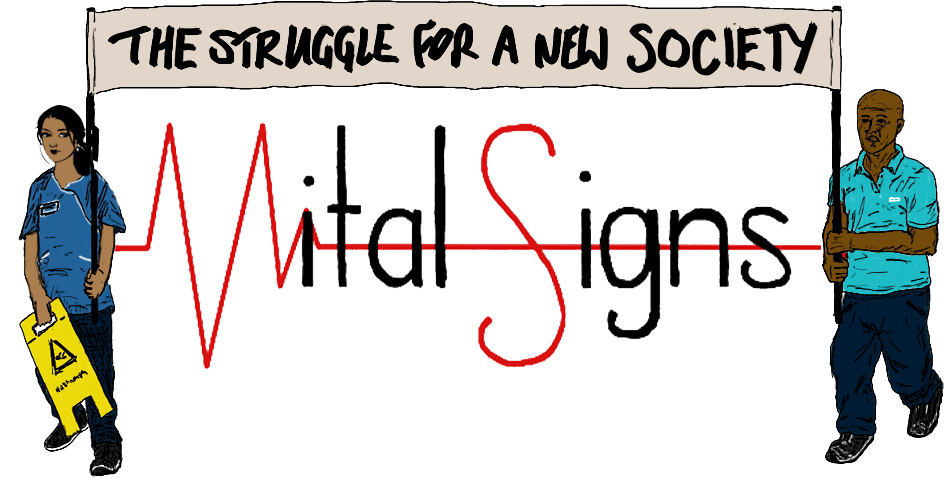‘Vital Signs’ is a magazine based at Southmead hospital and the BRI in Bristol. We aim at building solidarity beyond department, trust, contracts and profession. If you are an agency or bank worker and have a story to share, get in touch. Feel free to share this text with fellow workers.
vitalsignsmag@proton.me / www.vitalsignsmag.org
Cuts are currently being imposed across the NHS. In Leeds, the Teaching Hospital announced to save £110 million in the year ahead. The director of finance: “We have identified a need to further reduce our pay spend on bank and agency staff because over recent years we’ve made a significant increase in permanent clinical staff.” We all know that actually more permanent nurses leave the job than management is able to hire, so cutting bank and agency shifts will mean a deterioration of staffing levels and more stress for everyone, including patients.
The situation seems similar at our two hospitals in Bristol. Here are a couple of statements from friends:
“I work in theatres, where they have drastically cut agency work. These colleagues have been with us a long time, sometimes for years. We built close relationships. It is true, they hired new people, but at the moment nearly two thirds of the theatre staff has been in the job less than a year. This means a lot of knowledge is gone together with the agency colleagues. And many experienced permanent staff also leave and shift to private hospitals. Operating Department Practitioners on agency contracts said that their wages might be reduced in summer and they are thinking about leaving. We should have opposed these cuts!”
“I work bank shifts as a nursing assistant and currently the trust won’t put out any ‘allocation on arrival’ shifts anymore. They also cancelled some of my AOA shifts. These shifts were important to make ends meet at the end of the month. Everyone sits on their phones and tries to snap up the rare Saturday and Sunday shifts as soon as they appear. People are getting a bit desperate. Shifts for agency nurses have also been cancelled. They ask bank staff if they want to work in Weston”
Cancel culture
The current reduction of bank shifts comes shortly after another disappointment for bank HCAs. Unlike their permanent co-workers they didn’t receive a back payment for having done Band 3 work for a Band 2 wage. It is still often the case that shifts are booked as Band 2, but bank workers are expected to perform medical tasks, such as glucose tests or clinical observations.
Bank work is a fairly new thing and at the time when the trusts introduced it there was discontent amongst hospital workers. It was clear that they would try to cut over-time shifts, which have to be paid at 1.5 rate, and replace these with cheaper bank shifts. And that’s what happened. Even now some colleagues work bank shifts on top of their 37.5 hours and are paid only the single, not the overtime rate. The dimensions are considerable. We don’t have current figures, but a couple of years ago the BRI alone employed 1,600 workers on bank contracts.
We live in a market society, where money counts more than human needs and relationships. We can understand colleagues who leave their permanent jobs because they can earn more as agency workers or because bank work gives more ‘flexibility’. This works out as long as there are shifts on offer, and we experience that we get into trouble when there are none. We also know that relationships at work suffer when people come and go.
We want to create solidarity between people who work together, no matter their contract. But perhaps now is the time to demand permanent jobs at better pay rates and with more freedom to arrange our shifts around other needs?
The current cuts are not a natural necessity, they are an attack and should be treated as such.
Tell us what you think and how you cope with the situation!




